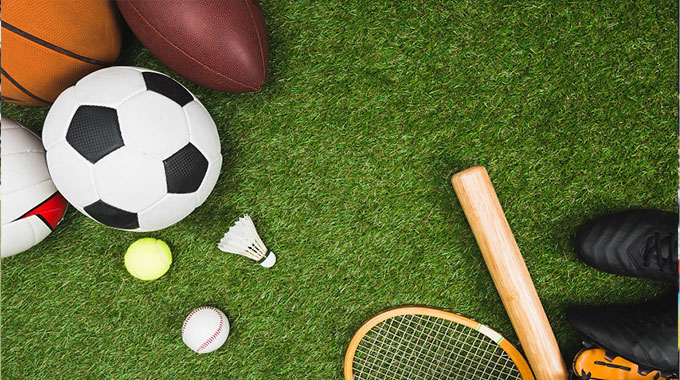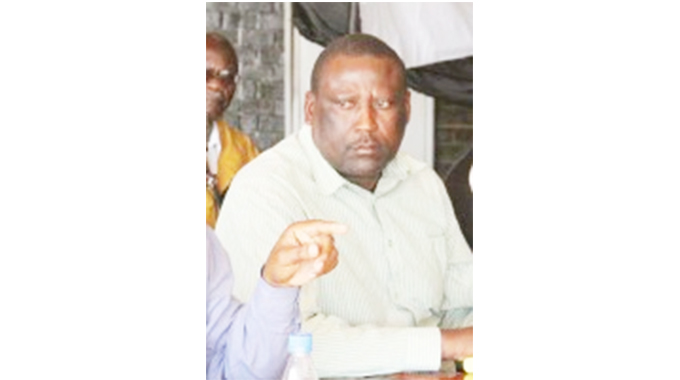Spare a thought for young talent

Ricky Zililo, Senior Sports Reporter
LAST month the sports industry celebrated when Cabinet gave the green light to sports classified as medium and high risk to resume activities, ending a year of inactivity.
Football and rugby are the biggest sports that have been on hold locally since March last year when measures were introduced to curb the spread of the coronavirus.
In sanctioning the return of sport activities, the Sports and Recreation Commission informed national associations the conditions that have to be met in for them to be allowed to resume.
The SRC reiterated that the green light for resumption is reserved for local competitions only.
For football, the SRC sanctioned a gradual approach with only the PSL and the women’s league set to start activities before it is unlocked on a full scale.
Besides sticking to the Covid-19 standard operating protocols that include, among other thigs, regular testing of athletes and officials, sanitising facilities and temperature checks, the SRC said associations that want to participate in regional, continental and international tournaments have to apply to the Ministry of Youth, Sports, Arts and Recreation through the SRC.
These applications have to be made 30 days before the tournament kicks off and will be authorised by the Minister of Health and Child Care.
All these were conditions meant to safeguard the return of sport and ensure that Covid-19 spread is combated during games.
While the country celebrated the resumption of activities, one thing that must be noted is that in disciplines like football, rugby and cricket, the green light was only given to seniors’ competitions.
Maybe the reason clearance was only given to senior participants as opposed to grassroots and supporting leagues was that it is easier to control and monitor progress made at the top before cascading to the lower tier.
However, in the midst of this positive outcome, in as much as sports activities are concerned, one crucial stage that is yet to be accounted for is the grassroots.
Schools are the breeding ground for development of any sport, but since their reopening, competitions remain banned.
The SRC said the ball is in the Ministry of Primary and Secondary Education’s court for sports to resume in schools after okaying schools’ sports to restart.
The National Association of Secondary School Heads (Nash) and National Association of Primary School Heads (Naph) have been working on a comprehensive document to convince the Ministry of Primary and Secondary Education to allow sports to resume in schools.
Nash president Arthur Maphosa noted that the continued suspension of sorting activities denies talented pupils that are less academically gifted opportunities to nurture their skill.
Maphosa hopes their application will be successful, as they want to start with athletics soon.
“We desire to resume sporting activities because most kids have lost opportunities to travel and develop their talents. Last year we couldn’t stage the traditional Copa Coca-Cola competition and that age group of Under-15s has missed out. By playing in competitions like Copa Coca-Cola, kids get an opportunity to travel to East Africa and learn other cultures so, we hope the Ministry will allow us to resume activities,” Maphosa said.
Besides the Coca-Cola funded premier schools’ football tournament, Naph and Nash athletes also compete in the annual regional Cossasa Games, a competition for primary and secondary school athletes from Southern Africa
Without clearance to train, which requires sound financial standings so that the lower leagues conduct Covid-19 tests on athletes and officials, it is unlikely that the lower leagues will resume activities soon.
This means development of athletes will remain stagnant, raising the possibility of losing some talent in the process having gone for two years without activity.
The majority of players from the lower tier leagues are participating in unsanctioned competitions, risking career ending injuries.
The truth is that Covid-19 has really affected the sports industry’s development programmes and s the damage caused by the pandemic will be felt in about three or four years’ time when the huge developmental gap yawns for all to witness.
In cricket, only cricketers playing first-class competitions have been active, with aspiring cricketers in developmental stages participating in provincial leagues and schools sitting it out.
Tuskers administrator Nicholas Singo told Chronicle Sport that only 25 contracted cricketers have been active for the Bulawayo based franchise.
This means that since there are five franchises in Zimbabwe, only about 125 players have been training. The number might sound big, but for a country with an estimated population of 15 million, most budding cricketers have been robbed of a chance to develop and enhance their chances of breaking into national teams.
So, while we celebrate the return of sporting activities, let us spare a thought for talent that is lying idle and could be lost due to the pandemic.
For age groups competitions, someone who was supposed to go through the basic training as an Under-13, has missed that as they now belong to the Under-15 category and are likely to miss the fundamentals of any sports development. – @ZililoR









Comments